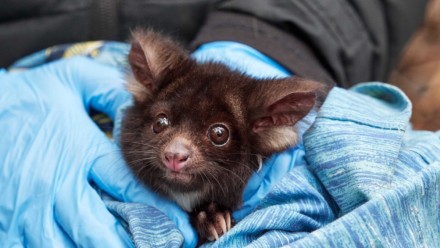Heat spells doom for Aussie marsupials
When animals are hot, they eat less. This potentially fatal phenomenon has been largely overlooked in wild animals, explain researchers from The Australian National University (ANU) in a new article.
According to lead author Dr Kara Youngentob, it means climate change could be contributing to more deaths among Australia's iconic marsupials, like the greater glider, than previously thought.
"Hot weather puts all animals off their food. Humans can deal with it fairly well; we usually have plenty of fat reserves and lots of different food options," Dr Youngentob said.
"But it's much more serious for animals with highly specialised diets, like greater gliders. If they don't eat regularly, they don't meet their nutritional requirements to stay alive. They also get most of their water from their food, so not eating leads to dehydration too.
"Even night-time temperatures can get hot enough to cause nocturnal animals to lose their appetite during heatwaves.











